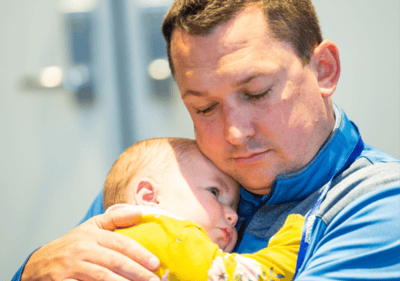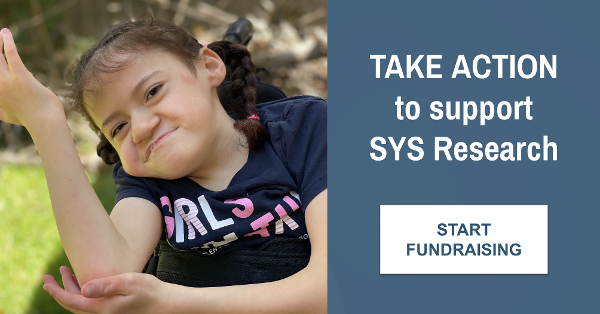Schaaf-Yang syndrome (SYS) is an ultra-rare disorder that was first identified in 2013. It is caused by mutations in the MAGEL2 gene, a gene that is also deleted or inactivated in Prader-Willi syndrome (PWS). Because SYS is a relatively newly described disorder, it’s important to understand the breadth of symptoms experienced by those with SYS, as well as the degree of impact of the disorder on the person with SYS and their family, so that research efforts can be appropriately directed.

As a first step to understanding the needs of SYS families, a survey was developed and distributed to families who have a loved one with SYS. The survey focused on defining symptoms that were challenging for the person with SYS, the impact of SYS on the family, and the priorities for the development of new therapies for SYS. The results of that survey, completed by the primary caregiver (usually a parent) of 81 individuals with SYS, have been published in the journal Molecular Genetics & Genomic Medicine, and the paper is freely available here: Caregiver-based perception of disease burden in Schaaf-Yang syndrome.
The results of the survey showed that among the most challenging symptoms associated with SYS, parents highlighted developmental delay or intellectual disability (ID) as the most impactful aspect of SYS. This is not surprising; the intellectual ability of those with SYS can vary greatly from individual to individual, but many experience severe ID. Consistent with those challenges, families felt that communication difficulties and delayed speech were also very important.
Behavioral issues, including challenging behaviors, autism, and anxiousness, were much more common than seen in the typical population, although not all individuals with SYS showed these problems.
Hypotonia (low muscle tone) occurred in most individuals with SYS, and contractures (rigidity in the joints) were also present in the majority of individuals. These issues led to difficulties with mobility that were very challenging for many families. Physical therapy (PT) helped to address some of these mobility concerns, and more than 95% of families received PT services.
Individuals with SYS had feeding difficulties early in life, but these concerns decreased in older children. Some children went on to develop hyperphagia, or excessive appetite, but this was not uniform across the SYS population.
Hormonal deficiencies, such as growth hormone deficiency, were also common, and slightly over half of the SYS families reported using growth hormone therapy for their child with SYS. Additional symptoms that were experienced included sleep problems, gastrointestinal problems (e.g., chronic constipation), and breathing problems, particularly in younger individuals with SYS.
Given the many challenges associated with SYS, it’s not surprising that families reported that the disorder had a strong impact not only on the person with SYS but also on the entire family. Caregivers reported a decreased ability to work outside the home, engage in social activities, and reach long-term goals. With respect to the development of new treatments to improve quality of life in SYS, families were most interested in therapies that might improve intellectual functioning, decrease mobility problems, and enhance positive social interactions.
This survey clearly demonstrates that families dealing with SYS face many challenges. This is a population of individuals who would greatly benefit from new, effective therapies to mitigate some of the symptoms discussed. This paper represents a formal first step in defining the needs and priorities of the SYS community as we look towards developing new treatments to help those with SYS reach their full potential and enjoy a healthy and fulfilling life. We want to acknowledge the families that completed the survey; this information is critical to ensuring that SYS research focuses on the things that are most important to families, and we appreciate your help in making that happen.








